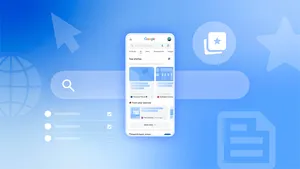In Brussels, Fighting Misinformation Online

According to the IPSOS agency, 29% of people surveyed this year in Central Europe and the Baltic express being strongly affected by disinformation in the media. And the trend is echoed internationally.
Every day, millions of people use Google and YouTube to access accurate information, and help them sort the facts from fiction. We take the challenge of fighting the spread of misinformation online very seriously, but it’s not something we can do alone.
Today, Google, in partnership with YouTube, the European University Institute and Calouste Gulbenkian Foundation, is convening European policymakers, NGOs, media organizations, academics and tech companies to collaborate and share knowledge about tackling misinformation. Over 920 people in Brussels and online will join the discussion, with talks led by experts from across the misinformation landscape.
Further support in the fight against the spread of misinformation online
Today we’re announcing additional ways we are furthering media literacy efforts through partnerships and initiatives across Europe:
- Google and YouTube are announcing a $13.2 million grant for the International Fact-Checking Network (IFCN) to launch a new Global Fact Check Fund to support their network of 135 fact-checking organizations from 65 countries covering over 80 languages. Building on our previous work to address misinformation, this is Google and YouTube’s single largest grant in fact-checking.
- As part of Google’s commitment to fight disinformation in Central and Eastern Europe, we're also supporting civil society and research efforts. Google.org is providing $2.5M in grant funding to TechSoup Europe to launch an accelerator fund and will help NGOs fight against disinformation, along with another grant supporting Demagog in building its fact checking ecosystem across the region. Additionally, IPSOS recently published research on the extent to which people are exposed to disinformation in the region. The research is the first of a series of projects conducted in cooperation with the Central European Digital Media Observatory (CEDMO), a research and monitoring hub within Charles University, and supported by Google.
- YouTube has launched a media literacy initiative, “Hit Pause,” to help people assess the content they watch and share by providing tips on identifying different manipulation tactics used to spread misinformation. This will roll out across Europe in the coming months. YouTube also raises up authoritative sources in search results and recommendations, and connects people with information panels for certain topics prone to misinformation that point people to third-party sources for additional context.
These new initiatives build upon our work at Google and YouTube to create products and tools to help people around the world better understand what they are seeing online. For instance, About this Result, a feature in Search which provides critical context on a result before you visit the page, was recently expanded to additional languages and has been used more than 2.4 billion times. We also launched a “Super Searchers” initiative to train librarians and library staff across 12 European countries on media literacy best practices, including how to use these tools and our Google Safety Engineering Center for Content Responsibility, in Dublin, opened in 2021 to provide greater transparency to policymakers, researchers and regulators on our work tackling the spread of harmful and illegal content.
Jigsaw, a team within Google that develops research and technology to counter online harms, has also partnered with local experts and academics to develop approaches to both directly counter disinformation and help people more easily identify and refute it. The team recently deployed a series of prebunking videos as a preemptive tactic to help counter anti-refugee narratives across Central and Eastern Europe.
We’re grateful to have the opportunity to hear from experts in the misinformation and media literacy communities today in Brussels, and will continue the open and constructive dialogue on how we can make progress together.







